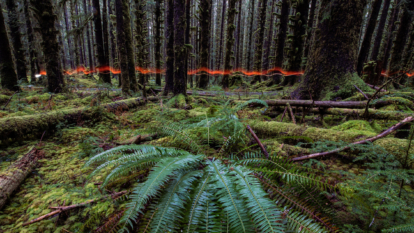In Search of Silence
A runner explores what it takes to find quiet in the world, and in our minds.
All photos by Steven Gnam
On a forest path in the early morning, sun filters through tall trees casting beams of light through the mist. The air is still. Fallen leaves soften the trail, the dirt still damp from earlier rain. With each stride, I ease into the day, listening to a chorus of natural sounds—insects chirping, frogs croaking, birds singing. Dripping leaves tap on the forest floor. A gentle brook cascades and bubbles. My mind becomes quiet. But, soon the morning will give way to the busyness of the day as the rest of the world wakes up, getting louder by the minute.
There is so much noise in our lives. Outside our windows a car alarm goes off, an engine rumbles and ambulances wail. Nearer at hand, our email pings and phones ring. Even when we’re not aware of it, it takes its toll. We wear noise-canceling headphones and play music to drown out sound with more sound. Even in the absence of acute noise, there’s a hum.
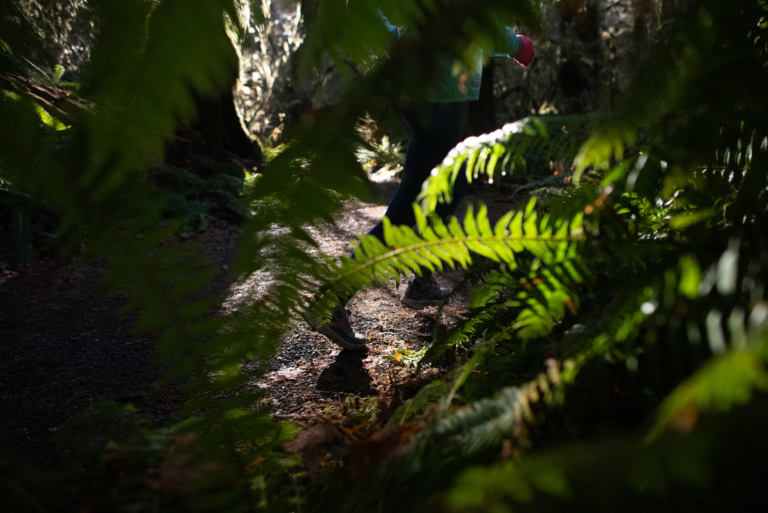
For many of us, the world is often too loud. Quiet is in decline. Each generation hears more noise than the last. As we populate the Earth and our mobility increases, so does the number of roads, highways and airplanes. We sprawl outside of cities, bringing the things with us we hope to escape. According to the World Health Organization, noise pollution contributes to stress, anxiety and depression. Research shows that prolonged exposure to low-frequency noise is physically and psychologically exhausting. And it’s not just noise that interrupts our daily lives. Our minds are also cluttered.
Chaos dominates the news. A pandemic keeps changing shape. Climate change is causing catastrophe after catastrophe. Housing costs have skyrocketed. The Supreme Court recently overturned a decision protecting a woman’s right to make decisions about her own body. As I write this in early 2022, Russian forces are murdering Ukrainians.
For me, only running truly quiets this noise. It feels necessary. It is necessary.
Natural sounds help regulate the nervous system. There’s a spot in the Hoh Rain Forest, in Washington’s Olympic National Park, that is one of the quietest natural places in North America. Gordon Hempton, a sound ecologist and natural silence activist, has campaigned to protect the natural quiet there.
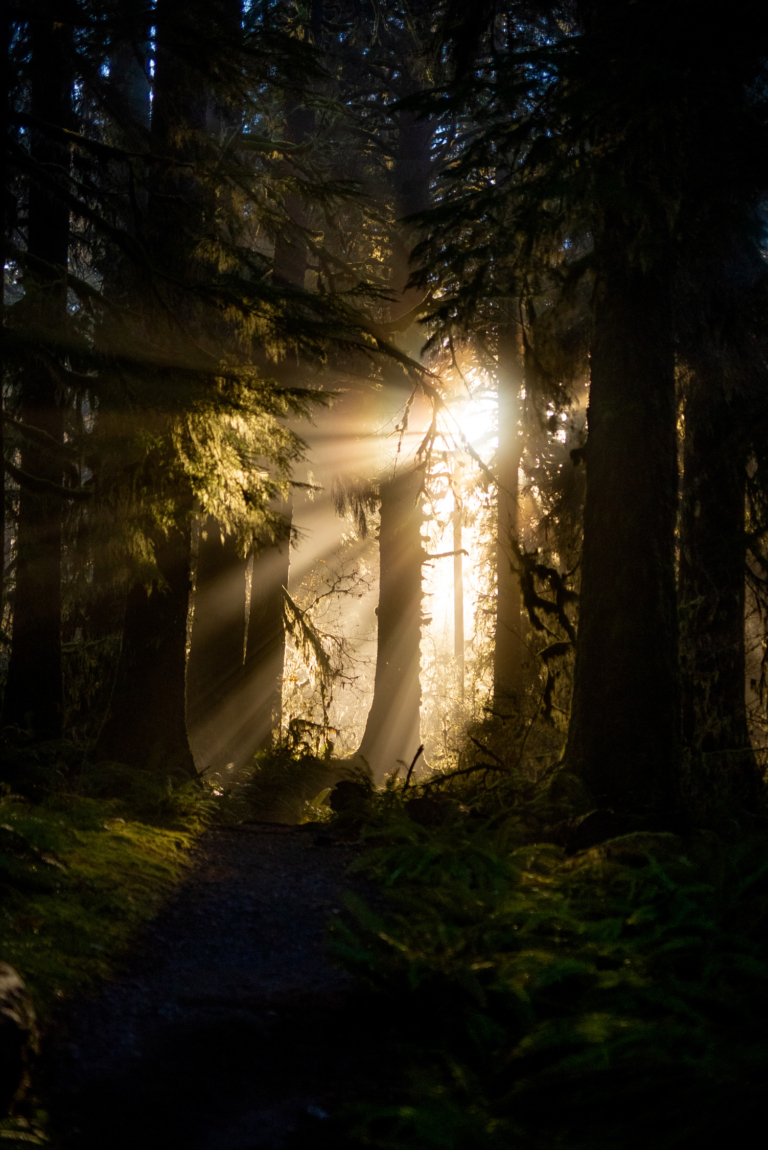
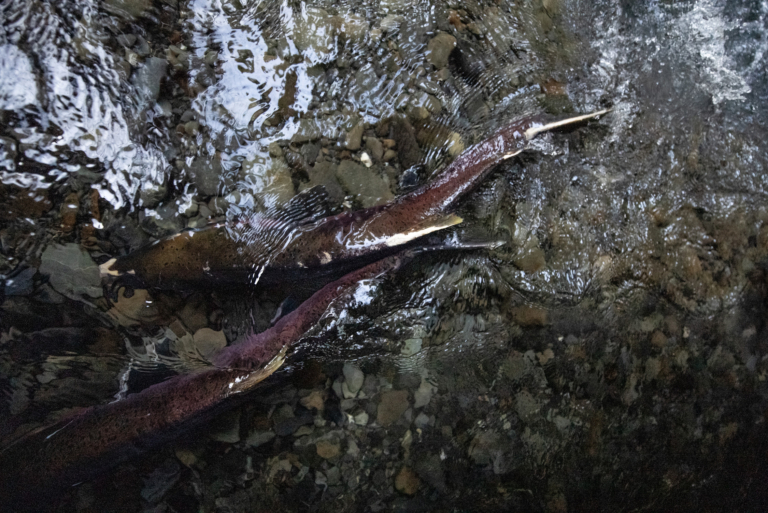
Olympic National Park is over 1,400 square miles and has 95 percent designated wilderness, and the Hoh Rain Forest is home to some of the largest stands of old-growth forest in the continental US. There are big-leaf maples, alders, cedars, Sitka spruce and Douglas fir. Licorice ferns, club mosses, grasses and shrubs. The park is home to 1,200 plant varieties, over 300 bird species, 15 rivers and 200 streams. Salmon migrate and spawn in the rivers.
Hempton believes there are few places left in the world where one can experience natural silence for more than 20 minutes without the interruption of planes, human voices or unnatural sounds. He lobbied airlines to change their flight paths to protect the Hoh’s quiet. No roads divide the park. There is no air tourism. The hope is that by preserving even one square inch of this natural silence, the surrounding areas will also benefit.
But even the places we think of as quiet, including the ones we seek out, like wilderness environments, can be noisy. Other humans pass by, their voices drifting with the breeze. Car doors open and close in parking lots.
Even remote nature isn’t truly quiet. Alpine glaciers, rain forests, lakes and streams can be quite loud. Leaves fall from trees. Rain and wind and birds punctuate the stillness. The Sahara dunes are known to hum. In the Hoh Rain Forest, mosses constantly drip, a bald eagle’s high-pitched shrill cuts through the forest’s ambient sounds and a whoosh of wind makes its way through the treetops’ rustling leaves. The quietest places on Earth are wide-open spaces, often in far-flung corners of the world.
But most of us have never heard the true absence of sound.
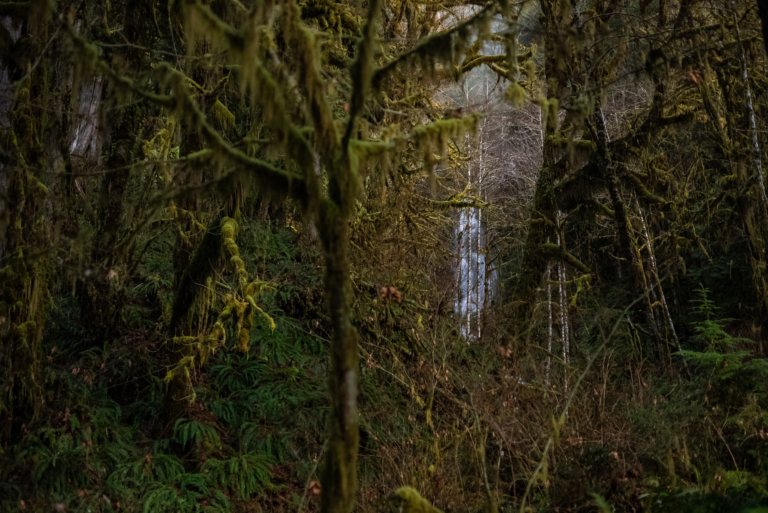
The anechoic chamber at Microsoft Headquarters in Redmond, Washington, which is used to test audio equipment, is the quietest place in the world, with a background noise reading of -20.6 decibels. It’s completely echoless. But even in a truly silent place, the human ear is so sensitive that spontaneous activity in the auditory nerve fibers increases amplification. According to Trevor Cox, author of The Sound Book, your body makes internal noises that even a sound chamber cannot dampen. We hear our own heartbeat, blood circulating, digestion rumbling, a ringing in the ear. The experience is sometimes described as “deafening.”
This is when I started thinking about how else we might define true silence. Maybe it’s not the absence of sound but instead the emptying of cluttered thoughts—a quiet mind. It’s a practice that’s been present for centuries in the form of silent retreats or daily meditations. Meditation has been shown to increase calmness, physical relaxation, psychological balance and overall well-being. All forms of meditation include a focus on breathing and letting distractions go in order to experience internal quiet. It’s something I find while running. The novelist Haruki Murakami calls it “running with an empty mind.”
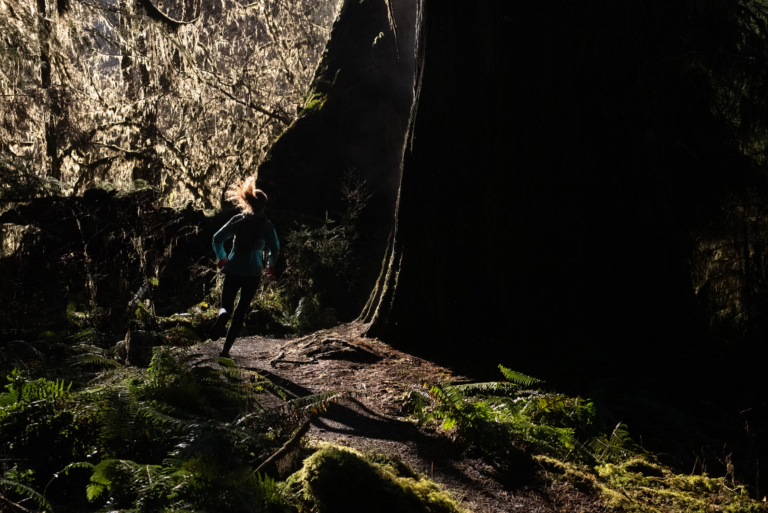
When I first head out on a run, my mind is often racing. The dirt is hard, frozen, the air crisp and fresh. Leaves crunch under my feet. I settle into a rhythm, take a few deep breaths. The scent of cedar and fir and pine hangs in the air. I start to let go—of the moments I wake in a panic, of the daily list of things to do, of the ways I close myself off. On the run, the river flows and with it, the static in my mind slows. The fast-paced world drowns in this cerebral natural quiet. Everything slackens, suspended in time with each step. This is silence.
I think about nothing. Nothing is nice. Maybe we don’t always need the absence of sound. Maybe we just need this. The forest is still—it is just the river and me, running.
See more on the experience of silence and nature in this short film we cocreated with Pop-Up Magazine.
